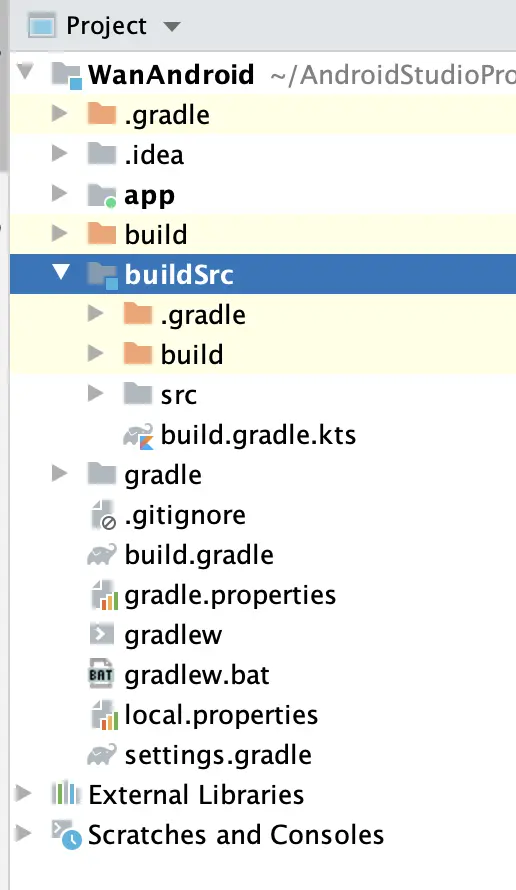
HTTPS 重要性
如果我们APP的API请求只使用了 HTTP,这个实在太容易被抓包了,我们的请求信息很容易就暴露,可能会被用来做不利于APP的事情。为了APP的请求安全,我们有必要改用HTTPS,用来保障我们的请求安全。但是使用HTTPS并不就代表我们的请求就是安全的了,因为还是可以实现抓包,接下来介绍如何通过杜绝 OkHttp 的 HTTPS 被抓包。
原理
杜绝 HTTPS 抓包的原理很简单,其实就是拦截非法的证书,只通过我们信任的 HTTPS 证书的请求。
代码
public class OkHttpSSLUtils {
public static OkHttpClient.Builder getOkHttpBuilder(Context context, String baseHostname, String... assetNames) {
OkHttpClient.Builder builder = new OkHttpClient.Builder();
try {
InputStream[] inputStreams = new InputStream[assetNames.length];
for (int i = 0; i < assetNames.length; i++) {
inputStreams[i] = context.getAssets().open(assetNames[i]);
}
GeneralHostnameVerifier hostnameVerifier = GeneralHostnameVerifier.getInstance(baseHostname, inputStreams);
if (hostnameVerifier != null) {
builder.hostnameVerifier(hostnameVerifier);
}
for (InputStream item : inputStreams) {
item.close();
}
} catch (Exception e) {
e.printStackTrace();
}
return builder;
}
public static OkHttpClient.Builder getOkHttpBuilder(String baseHostname, File... files) {
OkHttpClient.Builder builder = new OkHttpClient.Builder();
try {
InputStream[] inputStreams = new InputStream[files.length];
for (int i = 0; i < files.length; i++) {
inputStreams[i] = new FileInputStream(files[i]);
}
GeneralHostnameVerifier hostnameVerifier = GeneralHostnameVerifier.getInstance(baseHostname, inputStreams);
if (hostnameVerifier != null) {
builder.hostnameVerifier(hostnameVerifier);
}
for (InputStream item : inputStreams) {
item.close();
}
} catch (Exception e) {
e.printStackTrace();
}
return builder;
}
}
GeneralHostnameVerifier.java
public class GeneralHostnameVerifier implements HostnameVerifier {
private static final int ALT_DNS_NAME = 2;
private static final int ALT_IPA_NAME = 7;
public static GeneralHostnameVerifier getInstance(String baseHostname, InputStream... iss) {
try {
CertificateFactory certificateFactory = CertificateFactory.getInstance("X.509");
List<Collection<? extends Certificate>> list = new ArrayList<>();
for (InputStream is : iss) {
list.add(certificateFactory.generateCertificates(is));
}
if (list.isEmpty()) {
throw new IllegalArgumentException("expected non-empty set of trusted certificates");
}
return new GeneralHostnameVerifier(baseHostname, list);
} catch (Exception e) {
e.printStackTrace();
}
// Put the certificates a key store.
return null;
}
/**
* 公钥列表
*/
private List<String> clientPublicKey = new ArrayList<>();
private String baseHostname;
public GeneralHostnameVerifier(String baseHostname, List<Collection<? extends Certificate>> list) {
this.baseHostname = baseHostname;
for (Collection<? extends Certificate> certificates : list) {
for (Certificate certificate : certificates) {
clientPublicKey.add(certificate.getPublicKey().toString());
}
}
}
@Override
public boolean verify(String hostname, SSLSession sslSession) {
// 如果不是我们自己的域名就走用默认的验证方式,不验证公钥
if (!hostname.contains(baseHostname)) {
return defaultVerify(hostname, sslSession);
}
try {
// 从 SSLSession 获取请求的公钥信息
List<String> pubKeys = new ArrayList<>();
for (X509Certificate certificate : sslSession.getPeerCertificateChain()) {
pubKeys.add(certificate.getPublicKey().toString());
}
// 验证请求的 SSL 证书是否合法(我们认可的证书),才继续验证,否则返回失败
if (comparePubKey(pubKeys)) {
return defaultVerify(hostname, sslSession);
}
return false;
} catch (SSLPeerUnverifiedException e) {
e.printStackTrace();
}
return defaultVerify(hostname, sslSession);
}
private boolean comparePubKey(List<String> servicePubKeys) throws SSLPeerUnverifiedException {
if (servicePubKeys == null || servicePubKeys.size() <= 0) {
return false;
}
if (clientPublicKey == null || clientPublicKey.size() <= 0) {
throw new SSLPeerUnverifiedException("clientPublicKey null");
}
for (String key : servicePubKeys) {
if (clientPublicKey.contains(key)) {
return true;
}
}
return false;
}
public boolean defaultVerify(String hostname, SSLSession session) {
try {
Certificate[] certificates = session.getPeerCertificates();
return verify(hostname, (java.security.cert.X509Certificate) certificates[0]);
} catch (SSLException e) {
return false;
}
}
public boolean verify(String hostname, java.security.cert.X509Certificate certificate) {
return verifyAsIpAddress(hostname) ? verifyIpAddress(hostname, certificate) : verifyHostname(hostname, certificate);
}
/**
* Returns true if {@code certificate} matches {@code ipAddress}.
*/
private boolean verifyIpAddress(String ipAddress, java.security.cert.X509Certificate certificate) {
List<String> altNames = getSubjectAltNames(certificate, ALT_IPA_NAME);
for (int i = 0, size = altNames.size(); i < size; i++) {
if (ipAddress.equalsIgnoreCase(altNames.get(i))) {
return true;
}
}
return false;
}
/**
* Returns true if {@code certificate} matches {@code hostname}.
*/
private boolean verifyHostname(String hostname, java.security.cert.X509Certificate certificate) {
hostname = hostname.toLowerCase(Locale.US);
List<String> altNames = getSubjectAltNames(certificate, ALT_DNS_NAME);
for (String altName : altNames) {
if (verifyHostname(hostname, altName)) {
return true;
}
}
return false;
}
public static List<String> allSubjectAltNames(java.security.cert.X509Certificate certificate) {
List<String> altIpaNames = getSubjectAltNames(certificate, ALT_IPA_NAME);
List<String> altDnsNames = getSubjectAltNames(certificate, ALT_DNS_NAME);
List<String> result = new ArrayList<>(altIpaNames.size() + altDnsNames.size());
result.addAll(altIpaNames);
result.addAll(altDnsNames);
return result;
}
private static List<String> getSubjectAltNames(java.security.cert.X509Certificate certificate, int type) {
List<String> result = new ArrayList<>();
try {
Collection<?> subjectAltNames = certificate.getSubjectAlternativeNames();
if (subjectAltNames == null) {
return Collections.emptyList();
}
for (Object subjectAltName : subjectAltNames) {
List<?> entry = (List<?>) subjectAltName;
if (entry == null || entry.size() < 2) {
continue;
}
Integer altNameType = (Integer) entry.get(0);
if (altNameType == null) {
continue;
}
if (altNameType == type) {
String altName = (String) entry.get(1);
if (altName != null) {
result.add(altName);
}
}
}
return result;
} catch (CertificateParsingException e) {
return Collections.emptyList();
}
}
/**
* Returns {@code true} iff {@code hostname} matches the domain name {@code pattern}.
*
* @param hostname lower-case host name.
* @param pattern domain name pattern from certificate. May be a wildcard pattern such as {@code
* *.android.com}.
*/
public boolean verifyHostname(String hostname, String pattern) {
// Basic sanity checks
// Check length == 0 instead of .isEmpty() to support Java 5.
if ((hostname == null) || (hostname.length() == 0) || (hostname.startsWith("."))
|| (hostname.endsWith(".."))) {
// Invalid domain name
return false;
}
if ((pattern == null) || (pattern.length() == 0) || (pattern.startsWith("."))
|| (pattern.endsWith(".."))) {
// Invalid pattern/domain name
return false;
}
// Normalize hostname and pattern by turning them into absolute domain names if they are not
// yet absolute. This is needed because server certificates do not normally contain absolute
// names or patterns, but they should be treated as absolute. At the same time, any hostname
// presented to this method should also be treated as absolute for the purposes of matching
// to the server certificate.
// www.android.com matches www.android.com
// www.android.com matches www.android.com.
// www.android.com. matches www.android.com.
// www.android.com. matches www.android.com
if (!hostname.endsWith(".")) {
hostname += '.';
}
if (!pattern.endsWith(".")) {
pattern += '.';
}
// hostname and pattern are now absolute domain names.
pattern = pattern.toLowerCase(Locale.US);
// hostname and pattern are now in lower case -- domain names are case-insensitive.
if (!pattern.contains("*")) {
// Not a wildcard pattern -- hostname and pattern must match exactly.
return hostname.equals(pattern);
}
// Wildcard pattern
// WILDCARD PATTERN RULES:
// 1. Asterisk (*) is only permitted in the left-most domain name label and must be the
// only character in that label (i.e., must match the whole left-most label).
// For example, *.example.com is permitted, while *a.example.com, a*.example.com,
// a*b.example.com, a.*.example.com are not permitted.
// 2. Asterisk (*) cannot match across domain name labels.
// For example, *.example.com matches test.example.com but does not match
// sub.test.example.com.
// 3. Wildcard patterns for single-label domain names are not permitted.
if ((!pattern.startsWith("*.")) || (pattern.indexOf('*', 1) != -1)) {
// Asterisk (*) is only permitted in the left-most domain name label and must be the only
// character in that label
return false;
}
// Optimization: check whether hostname is too short to match the pattern. hostName must be at
// least as long as the pattern because asterisk must match the whole left-most label and
// hostname starts with a non-empty label. Thus, asterisk has to match one or more characters.
if (hostname.length() < pattern.length()) {
// hostname too short to match the pattern.
return false;
}
if ("*.".equals(pattern)) {
// Wildcard pattern for single-label domain name -- not permitted.
return false;
}
// hostname must end with the region of pattern following the asterisk.
String suffix = pattern.substring(1);
if (!hostname.endsWith(suffix)) {
// hostname does not end with the suffix
return false;
}
// Check that asterisk did not match across domain name labels.
int suffixStartIndexInHostname = hostname.length() - suffix.length();
if ((suffixStartIndexInHostname > 0)
&& (hostname.lastIndexOf('.', suffixStartIndexInHostname - 1) != -1)) {
// Asterisk is matching across domain name labels -- not permitted.
return false;
}
// hostname matches pattern
return true;
}
private static final Pattern VERIFY_AS_IP_ADDRESS = Pattern.compile(
"([0-9a-fA-F]*:[0-9a-fA-F:.]*)|([\\d.]+)");
/** Returns true if {@code host} is not a host name and might be an IP address. */
public static boolean verifyAsIpAddress(String host) {
return VERIFY_AS_IP_ADDRESS.matcher(host).matches();
}
}
测试
如果是直接 new OkHttpClient() 是可以抓包,如果 OkHttpClient okHttpClient = builder.build(); 就会提示证书验证错误。
OkHttpClient.Builder builder = OkHttpSSLUtils.getOkHttpBuilder(context,"test.com", "*.test.com.cer");
OkHttpClient okHttpClient = builder.build();
// OkHttpClient okHttpClient = new OkHttpClient();
Request request = new Request.Builder().url("https://api.test.com/user?uid=1").get().build();
Response response = okHttpClient.newCall(request).execute();
System.out.println(response.toString());
System.out.println(response.body().string());
下载说明:
1、本站所有资源均从互联网上收集整理而来,仅供学习交流之用,因此不包含技术服务请大家谅解!
2、本站不提供任何实质性的付费和支付资源,所有需要积分下载的资源均为网站运营赞助费用或者线下劳务费用!
3、本站所有资源仅用于学习及研究使用,您必须在下载后的24小时内删除所下载资源,切勿用于商业用途,否则由此引发的法律纠纷及连带责任本站和发布者概不承担!
4、本站站内提供的所有可下载资源,本站保证未做任何负面改动(不包含修复bug和完善功能等正面优化或二次开发),但本站不保证资源的准确性、安全性和完整性,用户下载后自行斟酌,我们以交流学习为目的,并不是所有的源码都100%无错或无bug!如有链接无法下载、失效或广告,请联系客服处理!
5、本站资源除标明原创外均来自网络整理,版权归原作者或本站特约原创作者所有,如侵犯到您的合法权益,请立即告知本站,本站将及时予与删除并致以最深的歉意!
6、如果您也有好的资源或教程,您可以投稿发布,成功分享后有站币奖励和额外收入!
7、如果您喜欢该资源,请支持官方正版资源,以得到更好的正版服务!
8、请您认真阅读上述内容,注册本站用户或下载本站资源即您同意上述内容!
原文链接:https://www.dandroid.cn/7116,转载请注明出处。
1、本站所有资源均从互联网上收集整理而来,仅供学习交流之用,因此不包含技术服务请大家谅解!
2、本站不提供任何实质性的付费和支付资源,所有需要积分下载的资源均为网站运营赞助费用或者线下劳务费用!
3、本站所有资源仅用于学习及研究使用,您必须在下载后的24小时内删除所下载资源,切勿用于商业用途,否则由此引发的法律纠纷及连带责任本站和发布者概不承担!
4、本站站内提供的所有可下载资源,本站保证未做任何负面改动(不包含修复bug和完善功能等正面优化或二次开发),但本站不保证资源的准确性、安全性和完整性,用户下载后自行斟酌,我们以交流学习为目的,并不是所有的源码都100%无错或无bug!如有链接无法下载、失效或广告,请联系客服处理!
5、本站资源除标明原创外均来自网络整理,版权归原作者或本站特约原创作者所有,如侵犯到您的合法权益,请立即告知本站,本站将及时予与删除并致以最深的歉意!
6、如果您也有好的资源或教程,您可以投稿发布,成功分享后有站币奖励和额外收入!
7、如果您喜欢该资源,请支持官方正版资源,以得到更好的正版服务!
8、请您认真阅读上述内容,注册本站用户或下载本站资源即您同意上述内容!
原文链接:https://www.dandroid.cn/7116,转载请注明出处。





评论0